Key takeaways
- Seven in ten say climate change is a major crisis or problem.
- Nearly half of Americans say their community’s weather this summer differs from that of past summers, including hotter weather caused by climate change.
- A rebuttal focused on the daily impacts felt from climate change is more effective than focusing on casualties and extreme weather when responding to those who say we shouldn’t invest in tackling climate change.
Seven in Ten Americans Recognize Climate Change as a Crisis or Major Problem
Nine in ten Democrats (89%) and three in four independents (74%) say climate change is a “major crisis” or “major problem,” while just 46% of Republicans say the same.
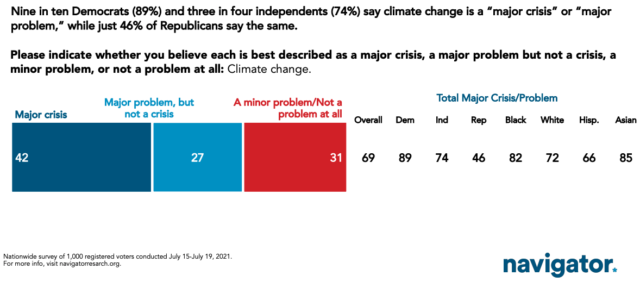
Biden and Democrats Are Much More Trusted on Issues Related to the Environment Than Republicans
Among independents, Biden and Democrats are more trusted to protect the environment by 26 points and to address climate change by 34 points.
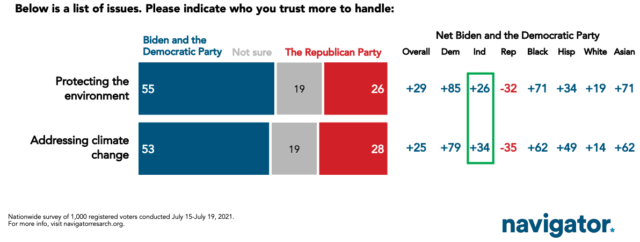
Nearly Half Say Weather This Summer Different From Past Years
At least half of Democrats and independents say this summer’s weather globally is different from summers past.
- For Americans who live in the Northeast and West, majorities say their community’s weather is different than years past and even higher shares in each region say the same of global weather.
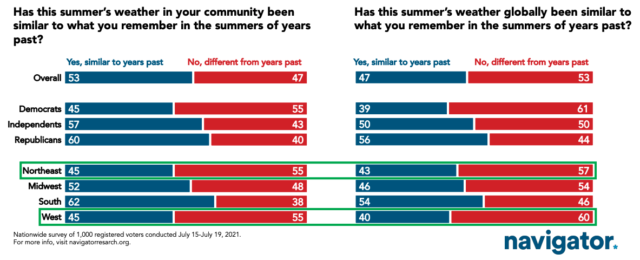
Extreme Weather Including Excessive Heat, Droughts, and Wildfires Seen as More Frequent; Most Blame Climate Change
Among the 47% who say this summer’s weather in their community differs from past summers’, most cite hotter weather as the differentiator and two in three blame temperatures rising as a result of climate change.
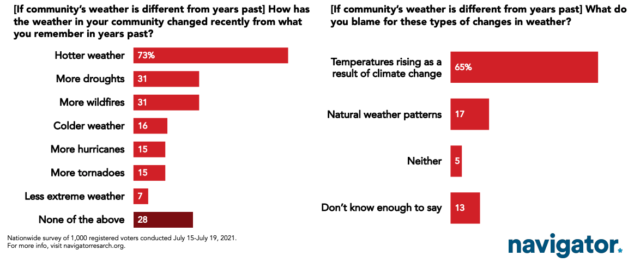
Grounding Climate Change in Its Impact on Daily Life for Americans Is Most Effective
A progressive argument that that rebuts a conservative statement by focusing on the casualties caused by climate change is more effective by double digits than the opposing argument, but an argument pointing to the effects of climate change on daily life including homes and small businesses is more effective by a net 6 points.
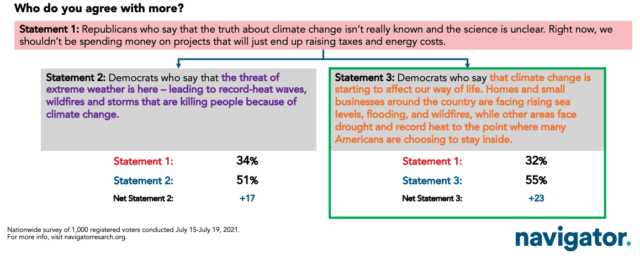
About The Study
This release features findings from a national online survey of 1,000 registered voters conducted July 15-19, 2021. Additional interviews were conducted among 100 Hispanic voters, 101 African American voters, 100 independents without a partisan lean, and 71 Asian American and Pacific Islander voters.

